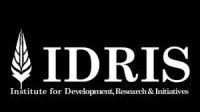The Controlled Tongue Prevents Verbal Misdeeds, Slander, Hatred, Bullying, Incivility, Extremism and Radicalism: Islamic Perspective on Ethical Communication
DOI:
https://doi.org/10.58764/j.prwkl.2024.2.70Keywords:
hatred, incivility, extremism, radicalism, ethical communicationAbstract
This paper discusses the critical issue of ethical communication, specifically controlling the tongue, a concept deeply embedded in Islamic teachings that holds profound relevance in today’s global context. As societies grapple with the pervasive problems of slander (fitna), discord, hatred, and bullying, the simple yet powerful ethical principle of tongue control emerges as a crucial tool for fostering harmony. In modern times, the spread of fake news and hoaxes has been widely discussed as an external threat to social cohesion, yet the internal discipline of speech—whether metaphorical or literal—has received far less attention. This paper seeks to address this gap by exploring how the Islamic insight to control one’s tongue can effectively prevent the spread of fitna, the escalation of hatred, the prevalence of bullying, and the rise of incivility, extremism, and radicalism. Through narrative construction, the paper examines the deep-seated negative impacts of these harmful practices and underscores the significance of verbal discipline in mitigating them. By highlighting the intrinsic value of controlling the tongue, the paper aims to present a holistic approach to curbing not only external threats like misinformation but also the internal moral lapses that contribute to societal discord, thereby promoting a more peaceful and just world in alignment with Islamic ethical principles.
References
» click to expand references listAbbas, A. F. (2010). Baik dan Buruk dalam Perspektif Ushul Fiqh. Ciputat: Adelina Bersaudara.
Abbas, A. F. (2015). Faham Agama Dalam Muhammadiyah. Jakarta: UHAMKA Press.
Abdullah, F. (2014). Virtues and character development in islamic ethics and positive psychology. International Journal of Education and Social Science, 1(2), 69-77.
Afifi, A. A. (2021). Understanding True Religion as Ethical Knowledge. AL-IMAM: Journal on Islamic Studies, Civilization and Learning Societies, 2, 1-5.
Afifi, A. A. (2024). Leader and the Leadership of the Prophet Muhammad: Strategy and Innovation in the Battle of Trench. Perwakilan: Journal of Good Governance, Diplomacy, Customary Institutionalization and Social Networks, 2, 1-10.
Afifi, A. A., & Abbas, A. F. (2023). Islam, Wacana Negara dan Geliat Politik di Indonesia. Perwakilan: Journal of Good Governance, Diplomacy, Customary Institutionalization and Social Networks, 1, 1-27.
Afifi, S., & Setiawan, N. A. (2021). Communication ethics in the book of Adabul Mufrad by Imam Al-Bukhari. Communications in Humanities and Social Sciences, 1(2), 82-90.
al-Bukhari. (2024). Sahih al-Bukhari. Retrieved from https://sunnah.com/bukhari
An-Nasa'i. (2024). Sunan an-Nasa'i. Retrieved from https://sunnah.com/nasai
An-Nawawi. (2024). Riyad as-Salihin. Retrieved from https://sunnah.com/riyadussalihin
Arifin, B., & Abbas, A. F. (2007). Masa Lampau Yang Belum Selesai: Percikan Pikiran Tentang Hukum & Pelaksanaan Hukum. Jakarta: O.C. Kaligis & Associates.
Charkawi, W., Dunn, K., & Bliuc, A.-M. (2020). The influences of social identity and perceptions of injustice on support to violent extremism. Behavioral Sciences of Terrorism and Political Aggression, 1'20. https://doi.org/10.1080/19434472.2020.1734046
Crockford, S. (2019). Becoming a Being of Pure Consciousness: Fasting and New Age Spirituality. Nova Religio: The Journal of Alternative and Emergent Religions, 23(1), 38-59.
Drigas, A., Mitsea, E., & Skianis, C. (2022). Intermittent Oxygen Fasting and Digital Technologies: from Antistress and Hormones Regulation to Wellbeing, Bliss and Higher Mental States. Technium BioChemMed, 3(2), 55-73.
Hendricks, S. (2022). The Oldest Cure in the World: Adventures in the Art and Science of Fasting. Abrams.
Ibn Majah. (2024). Sunan Ibn Majah. Retrieved from https://sunnah.com/ibnmajah
Khodayarifard, M., Ghobari-Bonab, B., Akbari-Zardkhaneh, S., & Zandi, S. (2016). Positive psychology from Islamic perspective. International Journal of Behavioral Sciences, 10(1), 29-34.
Kurniawan, D., & Afifi, A. A. (2024). Moderasi Beragama: Menangkal Islamophobia Melalui Revitalisasi Media Sosial. AL-IMAM: Journal on Islamic Studies, Civilization and Learning Societies, 5, 25-34.
Li, Z. Y., Frounfelker, R. L., Miconi, D., Levinsson, A., & Rousseau, C. (2023). Violent radicalization, mental health, and gender identity: considerations for future research. The Journal of Nervous and Mental Disease, 211(3), 244-247.
Muddiman, A., & Stroud, N. J. (2017). News values, cognitive biases, and partisan incivility in comment sections. Journal of Communication, 67(4), 586-609.
Munajat, N., Aulia, M. G., & Nafiisah, J. (2024). The Role of Communication Ethics in the Educational Domain of Islamic Religious Education. IJIRCS: International Journal of Islamic Religion Dan Culture Studies, 2(2).
Muslim. (2024). Sahih Muslim. Retrieved from https://sunnah.com/muslim
Nicolis, J. S. (1991). Chaos and information processing. World Scientific.
Nurdin, A., & Abbas, A. F. (2012). Sejarah Pemikiran Islam. Jakarta: Amzah.
Petric, D. (2022). Psychology of abusive human behavior. Open Journal of Medical Psychology, 11(2), 29-38.
Philips, B. (2024). The Best of Islam.
Pretus, C., Ray, J. L., Granot, Y., Cunningham, W. A., & Van Bavel, J. J. (2023). The psychology of hate: Moral concerns differentiate hate from dislike. European Journal of Social Psychology, 53(2), 336-353.
Rastogi, R., & Rastogi, D. (2013). Fasting as a curative practice: historical, traditional, and contemporary perspective. In Ayurvedic science of food and nutrition (pp. 123-135). Springer.
Schilpzand, P., De Pater, I. E., & Erez, A. (2016). Workplace incivility: A review of the literature and agenda for future research. Journal of Organizational Behavior, 37, S57--S88.
Vanderbilt, D., & Augustyn, M. (2010). The effects of bullying. Paediatrics and Child Health, 20(7), 315-320.
Downloads
-
PDF
views: 260
Published
How to Cite
Issue
Section
License

This work is licensed under a Creative Commons Attribution-ShareAlike 4.0 International License.
Copyright (c) 2024 Abdullah A Afifi




